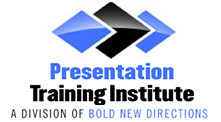1. Select the Right Workshop
The first thing you need to do is make sure you are attending the right workshop. If your employer is sending you, ask them how the workshop will fit with your role and why they want you to attend. If you are choosing a workshop on your own, look for something that would be beneficial to your current or future role. If you understand the benefits of attending a workshop, you will be more intentional about making the most of the experience.Â
2. Choose a Workshop that Focuses on Application
It’s one thing to read about a lesson in a book or listen to a speaker present from a slideshow, but it’s entirely different when it comes to actually applying that same lesson to real life. Look for providers that emphasize application and actually dedicate time during the workshop to focus on applying what you are learning.Â
3. Plan Ahead
Once you have selected a workshop, spend some time considering the opportunities that exist in your organization and how this workshop might be able to help you advance your skills in the workplace. You can also have a discussion with your manager to learn more about how these skills can be applied effectively in your organization.
4. Come with the Right Attitude
Aside from getting plenty of rest and showing up on time, you need to come with the right attitude and an eagerness to learn. This starts with leaving all distractions at the door. This means turning off your laptop, silencing your phone, and waiting until the class is over to check your email. Then, you need to have the mindset that you are there to learn. This helps you avoid just going through the motions and focusing on what you are actually there to achieve.Â
5. Engage
It’s not enough to just sit and listen to the lesson. You need to be part of the lesson. Don’t be afraid to participate, ask questions, volunteer, and actually get involved in the activities. It may feel awkward at first, but it will make the workshop so much more valuable.Â
6. Take Notes
While the workshop is going on, take notes about interesting things you are learning. Jot down how these ideas can help you in your current role. If the presenter is using a slideshow, you may also want to ask for a copy of the slide deck at the conclusion of the workshop.Â
7. Talk to the Instructor
Make some time to introduce yourself to the instructor and talk with them one-on-one. You can talk with them either at breaks or at the end of the session about what you learned. This is a great opportunity to ask questions, get clarification on certain concepts, or ask for advice on how these concepts can be applied in your context.Â
8. Develop an Action Plan
Now that the workshop is over, it’s time to think about the concepts and skills you learned and how you can incorporate them into your regular routines. Create a written action plan for how you will approach implementing these new skills and concepts. Do this as soon as the course is over, while the information is still fresh in your mind.
